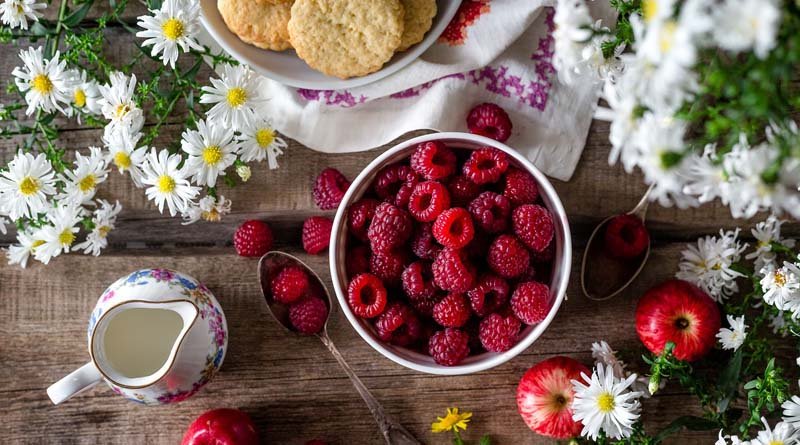
How Can Your Diet Affect Your Mood?
April 25, 2018The centers of our thoughts, our emotions, our mood, like those of nervous and muscular functions, are situated in the brain. Diet affects the proper functioning of the various systems of the body.
There is no evidence that food additives or junk foods have an impact on mood or behavior. Many parents find that their children become hyperactive after eating sweets or very sweet foods. Several scientific studies have shown that sugar, on the contrary, increases the formation of serotonin and thus tends to calm active children.
Among the foods that change mood, the best known is caffeine, a stimulant found in coffee, tea, colas and chocolate. If coffee is awake, too much caffeine causes palpitations, drowsiness and anxiety.
To better understand whether your diet affect your mood, you can ask yourself the following eight question.
1. Do you eat regularly?
If your blood sugar goes down, you may feel tired, irritable and depressed. It is important to eat regularly to maintain your sugar levels and choose foods that release energy slowly.
Foods rich in protein, nuts and seeds, oats and whole grains are slow-release energy foods.
Quick Tips:
- It is advisable to take several small meals and eat regularly during the day rather than eat a big dinner. Consumption of regular snacks helps maintain your energy level and mood throughout the day.
- Avoid foods that quickly raise and lower your blood glucose, such as sugary drinks and milk chocolate.
2. Have you eaten your 5 servings of fruits/vegetables during the day?
Fruits and vegetables contain a lot of minerals, vitamins and fiber that help keep us physically and mentally healthy.
Eating a variety of fruit and vegetable will ensure you have a variety of nutrients and good for your health. Therefore, eating multiple servings of the same type of food is not ideal and not as good as variety.
Quick Tips
- Tomatoes, mushrooms and bananas contain high potassium content, a nutrient essential for your nervous system and your brain.
- Prefer the consumption of raw vegetables because cooking destroys some vitamins.
3. Have you kept yourself hydrated today?
Drinking enough water will improve your concentration and reasoning ability. If you do not drink enough water, you may experience fatigue and constipation. Water, herbal tea or green tea is good drinks to hydrate. Avoid energy drinks because they contain several harmful additives.
Quick Tips
- On average, a person needs at least two liters of water a day to stay hydrated. A tiny amount of water comes from your food. It is therefore essential to drink a lot of liquid.
- Avoid tea and coffee because the caffeine it contains has the opposite effect and dehydrates you.
- Avoid alcohol, sugary drinks and carbonated beverages.
4. Do you eat good fats?
Your brain needs good fat to work well (such as omega 3 and 6). So do not avoid any consumption of fat, but rather consume the good fat.
Examples of foods containing good fats include: oily fish (salmon), poultry, walnuts (walnuts and almonds), olive and sunflower oils, seeds (such as sunflower and pumpkin), avocados, milk, yogurt, cheese and eggs.
Quick Tips
- Try to avoid foods and products containing trans-fat and partially hydrogenated oils in their list of ingredients (such as some cakes and cookies purchased in grocery stores). They can be tempting when you feel a lack of energy, but this type of fat is bad for your mood and your physical health in the long run.
5. Do you eat enough protein?
Protein contains essential amino acids so your brain can manage your thoughts and feelings. It also helps control your blood sugar level. Proteins can be found in lean meats, fish, eggs, cheese, legumes (peas, beans and lentils), soy products, nuts and seeds.
Quick Tips
- If you eat meat, choose meat from local producers or a butcher. The latter is often of better quality, often contains more nutrients and less fat. Whatever your diet, it is recommended to alternate sources of protein. Go ahead and find something new to try tonight.
6. How is your digestion?
Your state of mind is closely related to your digestion and your gut. Indeed, your gut uses a lot of chemicals consumed by your brain and is intimately connected to it. Here are some good foods for your gut: fiber (in fruits, vegetables, and whole grains), and yogurt containing probiotics.
Quick Tips
- Your bowels must get used to your new diet. It is therefore essential to make gradual changes to allow time for adaptation.
7. Do you eat too much caffeine?
Caffeine is a stimulant and can sometimes be comforting. However, it also has the ability to increase your anxiety level, your stress and disturb your sleep. Caffeine is contained in several products: tea, coffee, chocolate, soft drink and many energy drinks.
Quick Tips
- You may feel much better quickly if you drink less caffeine or avoid it completely.
8. Do you take medication?
Some foods can be dangerous if you take certain medications for anxiety disorders. For example, if you take MAOI (a kind of anti-depressant), you should avoid eating foods that have been fermented, pickled, salted, hung, dried or matured. Indeed, when the food is exposed to the air, a substance called tyramine increases significantly and the interaction between tyramine and MAOI can be very dangerous.
[148 total views]

